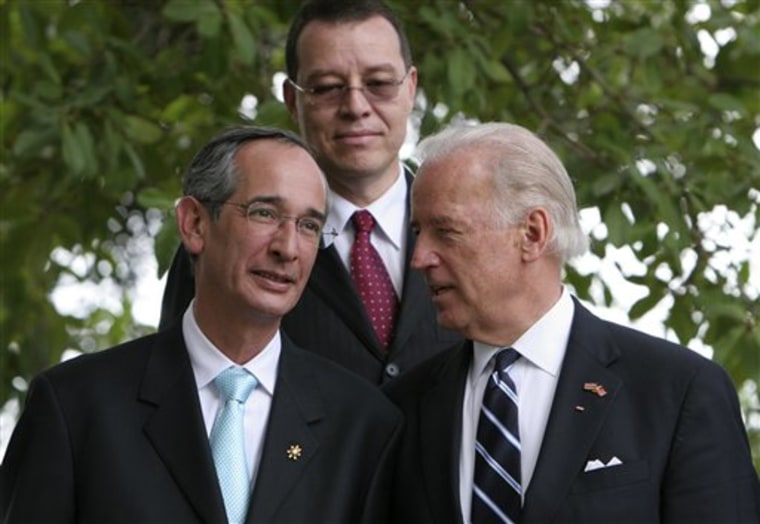Vice President Joe Biden on Monday told Central American leaders pushing the United States to slow its record pace of deportations to be patient since it will not change in the short-term amid the U.S. economic downturn.
Biden's one-day visit is the first to Central America by a top-level U.S. official since President Barack Obama took office in January, and he promised to work together with leaders to strengthen ties with a region that has felt ignored by Washington.
"We are not putting together a policy for the hemisphere," Biden said. "We are putting together a policy with the hemisphere."
Central American leaders, who met with Biden at the Presidential Palace in Costa Rica, pushed for a slowing of deportations. A record 80,000 Central Americans were deported from the United States in 2008.
Plea for patience
After the meeting, Biden told reporters that leaders must have patience while Washington devises a plan that will address the issue amid the U.S. economic downturn.
"There will not be an immediate response to deportations," said Biden, who arrived here late Sunday and left Monday afternoon after spending three days in Chile.
The deportations and U.S. economic downturn have hit the region hard. During the last quarter of 2008, money sent home by Central American migrants living in the United States fell 4 percent, compared to the same period the previous year, according to the Inter-American Development Bank.
Remittances are a major source of foreign revenue for Guatemala, El Salvador, Honduras and Nicaragua. Before the crisis, the amount of money sent to these countries was growing steadily every year.
During a visit to Central America last week, U.S. Deputy Secretary of State for the Western Hemisphere Tom Shannon said Biden will work toward securing loans for Central American social projects from the World Bank or the International Monetary Fund.
Biden said Monday the problem can only be solved in the context of an overall immigration reform, adding that there has to be a pathway to citizenship for the millions of illegal immigrants in the country. He did not give details on when or how such a reform would come about.
Drug war
The leaders also discussed the drug war, strengthening financial institutions to boost their ailing economies, and environmental problems. Mexican drug cartels have been increasingly moving into the region and spurring violence.
Biden said that anti-drug aid for Central America under the Merida Initiative will be increased to $100 million in 2009 from $65 million in 2008.
"We hope to keep it there in the coming years," Biden said.
Central American leaders have complained that they were ignored by the administration of George W. Bush. Biden made clear that the Obama administration intends to change that. He also emphasized that Washington wants to work with the region.
"I hope they are convinced of the sincerity of my government to change the dynamic," he said.
Biden is using his trip through Latin America as an opportunity to reach out in the run up to Obama's visit to the Summit of the Americas in Port of Spain, Trinidad.
Stronger ties with El Salvador?
The most recent in a series of left-leaning leaders elected in Latin America, Salvadoran President-elect Mauricio Funes said he hoped to strengthen his nation's strategic alliance with the United States.
Funes, who takes office on June 1, said he would not fall under the influence of Venezuelan President Hugo Chavez and urged the socialist leader not to meddle in El Salvador's affairs.
"Because my party has close ties to Chavez, that does not mean my foreign policy will be subordinated to Chavez," he said.
